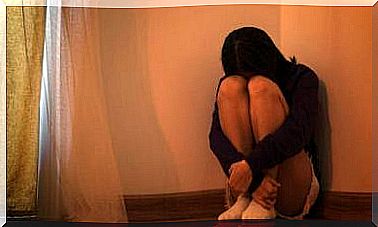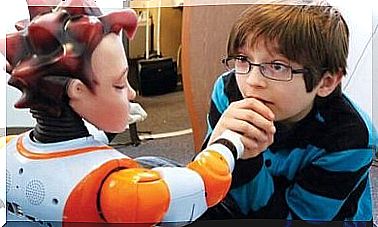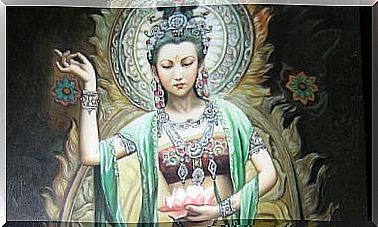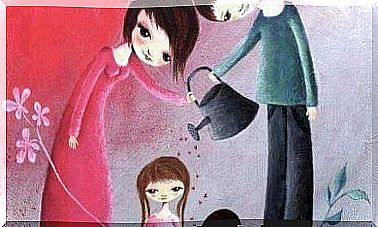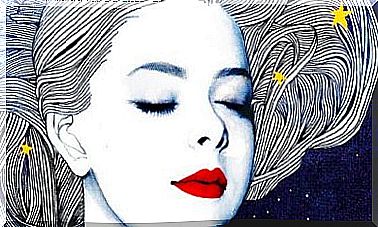The Surprise: A Fleeting And Unexpected Emotion

Let’s imagine that we have no reaction to the discovery of a party that we did not expect, when someone gives us an unexpected gift or when we walk along a sidewalk and hear a noise. In all these cases we are leaving out one of the six main emotions! We are talking about the surprise, a forgotten but fascinating emotion, which peeps out in front of something new.
The world of emotions is very interesting. We usually think of happiness, sadness, anger and fear; we tend to forget the surprise and disgust, even if the latter has taken hold in films dedicated to emotions, such as Inside out .
In this article we explore the most fleeting emotion, as well as the most unexpected: the surprise. We will find out what it consists of, what are its characteristics and what its effects.
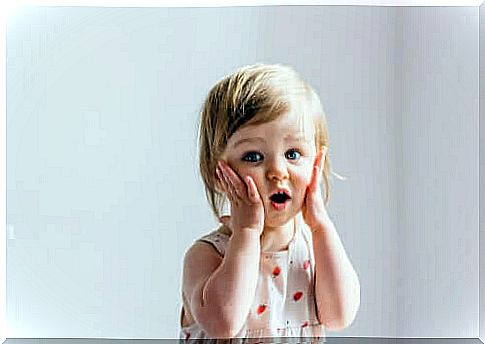
Surprise, what is it about?
Surprise is a sudden emotion, which manifests itself in front of a situation or context that we did not expect. It comes and goes quickly and just as quickly is associated with another emotion consistent with the situation.
But what is the reason behind this link? Let’s imagine walking down a road, when suddenly someone attacks us, or we are almost at home and find someone we did not expect at the door with a bouquet of flowers in their hand.
What would our reaction be? Surely by surprise, and then it depends on the situation; for example, in the case of aggression, the next emotion will be anger or fear, and in the case of flowers, it will be joy. The surprise, therefore, responds to the context.
Hand in hand with the emotional reaction, there is an increase in cognitive activity. This allows us to analyze the factors associated with surprise. Here the surprise is quickly associated with an emotion.
Surprise is therefore part of the basic emotions, along with happiness, anger, fear, sadness and disgust. It is present in any culture! And we know this thanks to Paul Ekman, a psychologist specializing in the externalization of emotions.
Characteristics of the surprise
Surprise is neither positive nor negative: it is a neutral expression. Let’s look at some features:
- This is the shortest emotion of all.
- It manifests itself suddenly.
- It can be triggered by new stimuli.
- It can occur as a result of a heightened and sudden stimulus.
- Surprise is the reflection of a reality : there are many unpredictable aspects in our future.
- It intensifies when the situation is of some importance to us.
- It is underlined by the next emotion.
- It favors attention in the face of new stimuli.
- It can occur following the interruption of the activity carried out.
It is important because it stimulates curiosity and learning. Also, it can involve beliefs about some events. For example, when a person adopts an unexpected position, the arguments become surprising and, most of the time, persuasive.

The effects of the surprise
Surprise stimulates the appearance of an emotion and appropriate behavior in unexpected situations. It clears the residual activity of the central nervous system that could interfere with the appropriate reaction to the news. It also has physiological and subjective effects, let’s see which ones.
Physiological
Physiological effects are associated with the functioning of the organism. In surprise, two types of activations occur:
- Activation of the autonomic nervous system. There is a reduction in heart rate, peripheral vasoconstriction and vasodilation of the cephalic system, a sharp increase in skin conductance and dilation of the pupils.
- Activation of the somatic system. There is a temporary increase in neuronal activity which can be detected by desynchronization. However, if the response is nonspecific or prolonged, the desynchronization involves the entire cerebral cortex and becomes tonic.
This emotion is also associated with a typical bodily expression: the eyebrows and upper lids rise, the pupils dilate, we open the mouth and the jaw lowers. The knees may flex slightly and the body, if we are standing, may tilt. All this could be accompanied by sounds or words like: “ah”, “oh”, “mmh” …

Subjective effects
These are effects that are based on the judgments and feelings of the individual. The duration will depend on when the next emotional reaction begins. So, try to stimulate the transition to the next emotion.
The main subjective effect is the so-called phenomenon of the empty mind. This occurs because the situation catches us unprepared and because it is difficult to give an explanation to what is happening at that precise moment.
Furthermore, surprise is a difficult sensation to define due to the amount of stimuli it can cause. On the other hand, it very often acts as a prologue or introduction to another emotion. That is to say that after feeling surprised, we very often feel cheerful or angry.
The surprise: prelude to another emotion
Perhaps due to its very nature as a prologue, it is the shortest emotion of all, but it is no less important from an evolutionary point of view. In fact, it stimulates attentional processes, the tendency to explore and curiosity in the face of unknown situations. It does this by directing the cognitive processes on the basis of the situation that arises.
Although not usually talked about, we try it often, not surprisingly it is one of the key points of viral advertising. In support of this thesis, the study conducted by Alberto Dafonte G ó mez for the Revista cientifica iberoamericana de comunicación y educación intervenes , in which the videos most often shared were analyzed. The hypothesis is that 76% of the most successful videos rely mainly on surprise. Incredible, right?
Finally, it is a selfless emotion. It stimulates the subsequent emotional and behavioral reaction starting from the analysis of a new situation. In other words, it prepares us to quickly move on to the next emotion. And the perfect companion for surprise is happiness.



